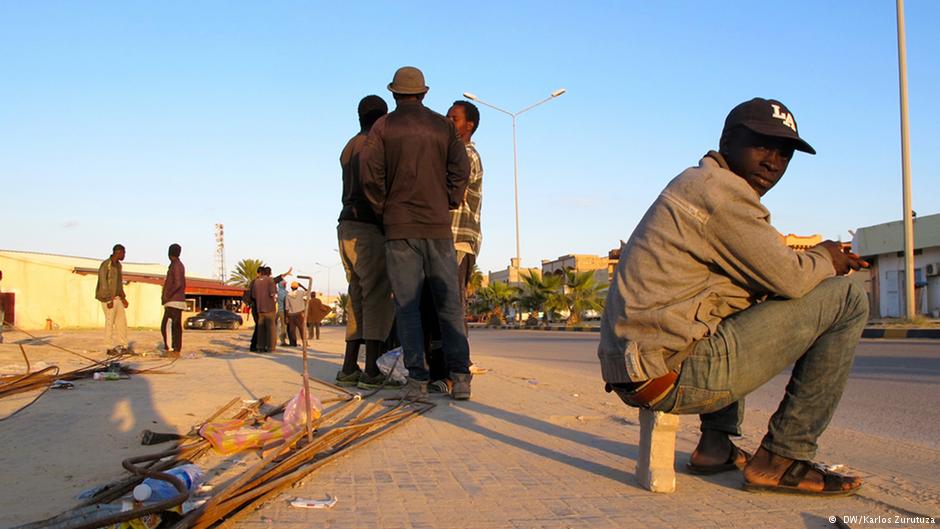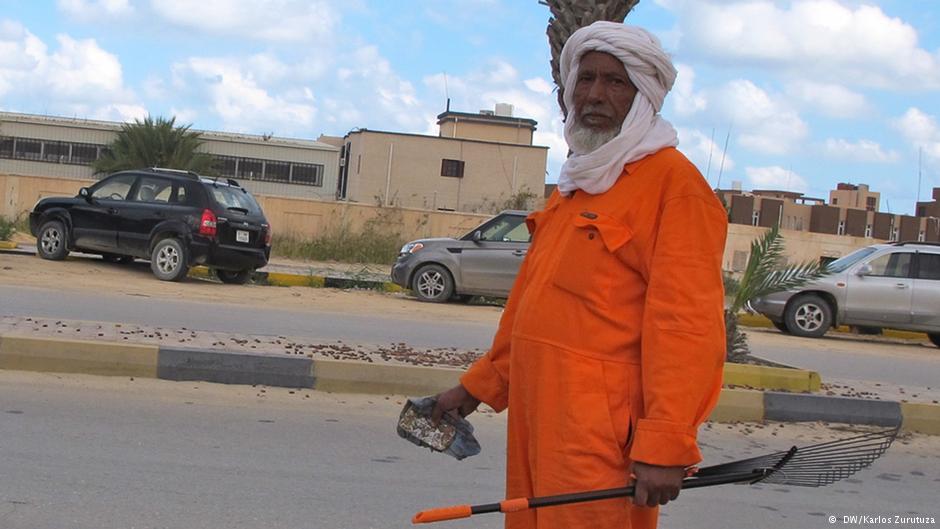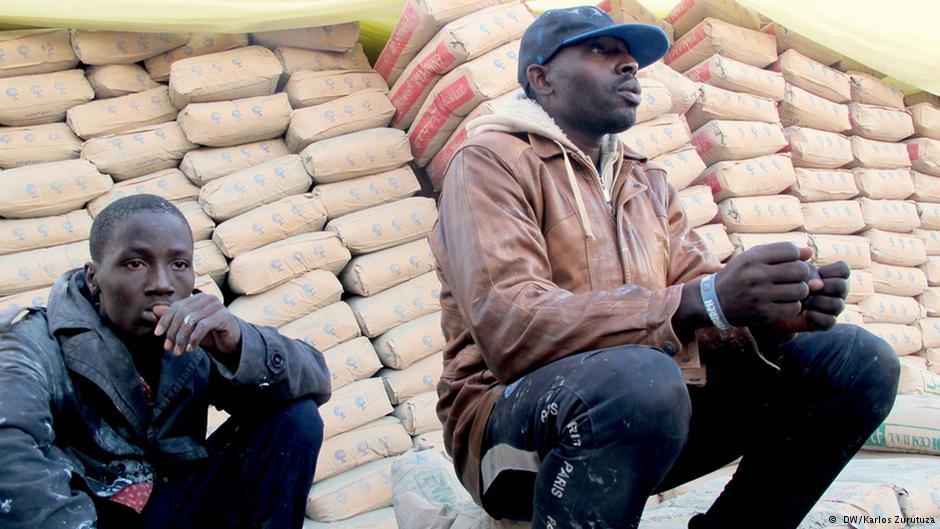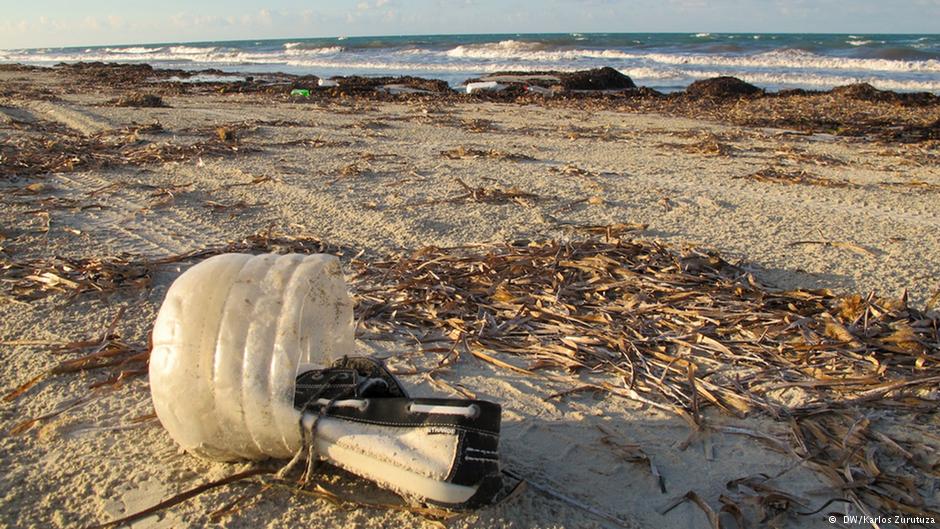An unlikely safe haven

Neither Suleyman, nor Ahmed or Rasool are HIV positive. It's confirmed by the medical certificates hanging at the entrance of their small restaurant in downtown Zuwara. The Nabelsi brothers came from Djerba, Tunisia, after the political earthquake that shook the whole region in 2011. The collapse of tourism in their country forced them to fold their business back home, which they later re-opened on this side of the border two years ago. Djerba is just a two-hour drive. Besides, Zuwara doesn't look that foreign to them.
"Many Tunisians moved to Tripoli looking for a job after the revolution, but we decided stay here because everybody here is Amazigh, the same as us," Suleyman explained as he wrapped a new batch of sandwiches in brown paper.
Also called Berbers, the Amazigh are native inhabitants of North Africa, with a population extending from Morocco's Atlantic coast to the west bank of the Nile in Egypt.
Located a hundred kilometres west of Tripoli, Zuwara, a town of 50,000 habitants, is the only Amazigh enclave on the Libyan coast. Today the road that connects the city with Tripoli is blocked by a rival militia, the same as the one that leads to the Nafusa mountains – Libya's main Amazigh stronghold.

Four years after Gaddafi was toppled, there are two governments in Libya, one in Tripoli and the other in Tobruk, 1,000 kilometres (620 miles) east of the capital. Chaos across the country is rife, but the Nabelsis say they have not yet decided to move again.
"There's no spot safer than this one in Libya. And if things ever get ugly we can always head west and cross the border," added Suleyman.
Peace in Libya
There's certainly a sense of normality in this city where one in two businesses is a coffee shop. However, Zuwara would have been devoured by the rubble and debris, were it not for the work of the cleaning squad. Along with the orange jumpsuit, the distinctive Touareg turban seems to have become part of the uniform of the street sweepers in Zuwara. Over the last year, many Touareg have arrived from Libya's remote south, fleeing the war with the Tubus – a sub-Saharan people – after centuries of peaceful coexistence in the desert.
Issa Shabud came from Ubari, a mainly Touareg location in southern Libya, in December. The 70-year-old Touareg looks nowhere near retirement.
"I lost my house and almost everything I had to the war down there," Shabud said. "Someone told me that Zuwara was a very peaceful city, so I didn't think it twice," added the man who has been displaced in his own country.
From the offices of the Red Crescent, Ibrahim Atushi, head of the NGO's emergency committee, said there are around 3,000 foreign workers registered in the city.

"They are Tunisians, Nigerians, Malians, Gambians ... and they come not only from Africa but also from countries as far away as Pakistan or Bangladesh," explained the official. "We know their number because they get a medical test from us," he added.
The unregistered
Zuwara's Martyrs' Square is lined with a myriad of panels and murals remembering the fallen from the 2011 war. Two hundred metres to the west, the road is suddenly flanked by dozens of individuals jumping into pick-up trucks that stop momentarily for them. They are also Tunisians, Nigerians, Malians, Gambians; there are even half a dozen Bangladeshis.
None of them have a medical certificate and, therefore, no work permit. They wait from dawn until late into the night along the road to get occasional work in construction, and they sleep in the crumbling stash houses nearby.
Halil, a 26-year-old Nigerian who agreed to talk on condition of anonymity, said he lost his parents and one of his brothers in the war against Boko Haram. Eventually he fled Nigeria, but the nightmare was far from over:
"Once in Tripoli a militia arrested me and handed me a mobile phone to call my family. I had to tell my aunt they'd kill me if they didn't pay $500," recalled the Nigerian. After one month the money arrived, but he was released only to be captured for a second time.

"Those who cannot afford to pay are either killed on the spot or sold as slaves," pointed the refugee. Many of those interviewed said they had undergone similar experiences, but all of them claimed such abuses were unheard of in Zuwara.
"Here our life is still miserable, but we wouldn't dare to speak to you in the middle of the street elsewhere in Libya," Amin, a 21-year-old Gambian said.
On a good day of work, Amin can make up to 15 Libyan dinars - around $5 ($4.70). With $600 he'll be able to jump on a raft to Europe. Over 600,000 people have made the journey this year, more than twice the number over all of 2014, in what has been labelled the biggest displacement of people since World War II.
Amin, however, won't be able to leave from here, since Zuwara citizens mobilised and a local brigade disbanded the local smugglers' network three months ago.
"Do you know where are they leaving from now?" asked Amin, wiping his face, still covered in dust. "Can you tell us where to go?"
Karlos Zurutuza
© Deutsche Welle 2015
